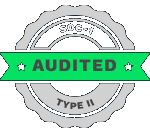WhatsApp is no longer just a messaging app it’s rapidly becoming the front line of customer engagement.
In 2025 and beyond, conversations are the new conversion, and WhatsApp is leading the charge.
With WhatsApp Business API, organizations can now bring sales support and marketing together into a single, seamless customer journey all within the messaging platform your customers already trust and use daily. This is not just convenience, it is a transformation of scale.
Where customer expectations, developer capability and executive version align, WhatsApp becomes a growth engine, not just a messaging tool.
Table of Contents:
The rise of conversational business is not a trend it’s a paradigm shift. And WhatsApp is taking the lead.
75% of adults want to communicate with businesses the same way they do with friends via messaging apps. (Source: Facebook Messaging Survey)
The rise of conversational business is not a trend it’s a paradigm shift. And WhatsApp is taking the lead.
What Businesses Can Expect from WhatsApp API
The WhatsApp Business API is more than just a messaging app; it’s a transformational platform that changes how businesses interact with customers by boosting customer engagement, improving communication efficiency, and enabling task automation.
Businesses should also demand features such as CRM integration, chatbot capabilities, and analytics tools to facilitate real time support and smart automation to maximize its potential.
Seamless Conversational Commerce
Businesses can sell products and services directly through chat, streamlining the purchasing process with the help of WhatsApp API. Customers can browse product catalogs, place orders and even finish payments in a single uninterrupted conversation.
This smooth experience reduces bounce rates, shortens the sales cycle, and promotes mobile-first shopping behavior particularly in regions where WhatsApp is already the default digital communication tool.
Brands using chat-based selling see up to 3x higher conversion rates than those using traditional web checkouts. (Source: Meta for Business)
Hyper-Personalized Customer Journeys
Hyper-personalized customer journeys are highly individualized, data-driven experiences curated to each customer’s unique behaviors, preferences, and needs.
By using advanced technologies such as artificial intelligence (AI), machine learning, and real-time data analytics, businesses can deliver timely interactions at every touchpoint.
This level of personalization goes beyond traditional segmentation by confirming that each customer receives unique interactions and content that align with their specific preferences, driving higher engagement, satisfaction, and loyalty.
Data-Driven Decision Making for Business Growth
The WhatsApp API provides access to rich customer data and engagement metrics that can develop sharper business strategies. Use chat insights to refine campaign performance, support workflows, and product feedback loops.
Merge with analytics dashboards and CRMs to build a complete view of customer behavior.
Unparalleled Customer Support and Engagement
WhatsApp API enables businesses to offer 24/7 customer support, automate FAQs, and escalate complex issues to live agents. Set up auto-responses for common queries (refunds, shipping, policies). Route inquiries to the right teams using custom workflows and AI bots.
Building the Next Generation of WhatsApp Experiences
WhatsApp Business API has come out as a powerful tool for brands to connect with customers efficiently. In 2025, it continues to evolve with new features, enhanced security, and improved automation.
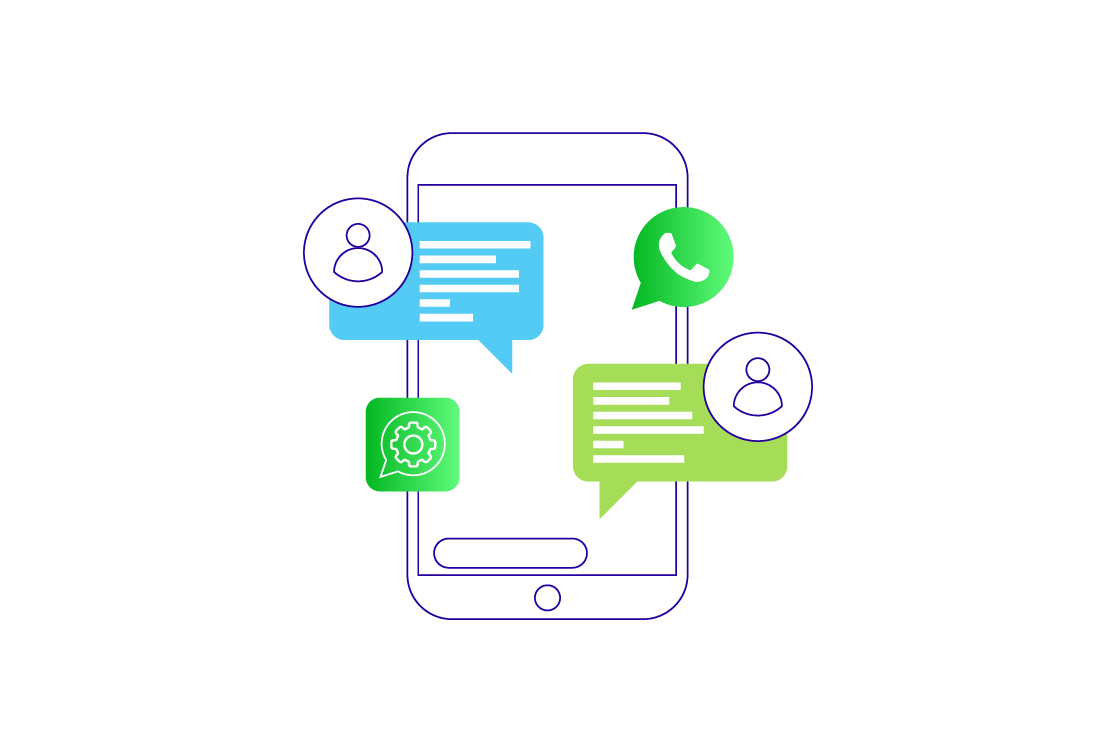
Becoming an expert with the WhatsApp Business API involves understanding its competencies to automate customer interactions, manage contacts, and integrate with other business tools.
70% of high-growth companies are investing in AI-powered conversational tools to improve user experience. (Source: McKinsey & Company)
Mastering Advanced API Capabilities
Advanced APIs enable next-generation WhatsApp experiences. These advancements enable businesses to manage conversations smoothly, deliver personalized experiences, and grow their operations. Integrate AI powered chatbots, advanced APIs, AI driven personalization, CRM integration, and unified customer journey.
Architecting for Scale and Security
As businesses grow, their messaging infrastructure must be designed to scale seamlessly while maintaining airtight security. The architecture should support large-scale concurrent sessions, allowing thousands of customer conversations simultaneously.
Integration with CRMs, chatbots, and automation tools should be modular and future-ready to accommodate evolving needs.
Innovation Toolkit: AI, Automation, and Beyond
To stay competitive in the digital-first world, businesses need more than basic tools. They need an innovation toolkit powered by AI, automation, and emerging technologies.
The WhatsApp Business API serves as a launchpad for this innovation, allowing companies to build smarter, faster, and more intuitive customer experiences.
The innovation toolkit is about, doing more with less delivering scalable, intelligent customer engagement that evolves with user expectations and business goals.
Connecting to Your Ecosystem
As businesses grow, their operational complexities increase. Seamless integrations ensure that scaling up doesn’t mean starting over.
This not only enhances operational efficiency but also enables real-time decision-making, personalized experiences, and scalable growth.
Here’s how each system plays a vital role in this interconnected ecosystem:
Customer relationship management (CRM) is a tool that helps companies track and drive revenue while maintaining and improving customer relationships.

It provides full context of where prospects and customers are in their buying journey to move deals along. Accurately forecast and manage pipeline to plan, track and analyze the sales process
View key customer and potential customer information in one place to personalize interactions. Set up triggers and automate tasks to keep sales representatives on target.
Enterprise Resource Planning (ERP) Systems
ERP is a category of business software systems such as SAP, Oracle, and NetSuite that automate core business processes and provide real-time insights and internal controls.
These systems draw on a centralized database that aggregates inputs from various departments, including accounting, manufacturing, supply chain management, sales, marketing, and human resources (HR)
Automatically syncs order data from e-commerce platforms to inventory and finance.
It improves demand forecasting through real-time inventory visibility, enables efficient resource allocation and accurate reporting, and reduces human error by automating manual data entry.
E-commerce Platforms (e.g., Shopify, WooCommerce, Magento)
E-commerce platforms (such as Shopify, Magento, and Woocommerce, among others) do more than just facilitate online sales; they serve as a central hub for product information, pricing, inventory, customer data, and marketing tools.
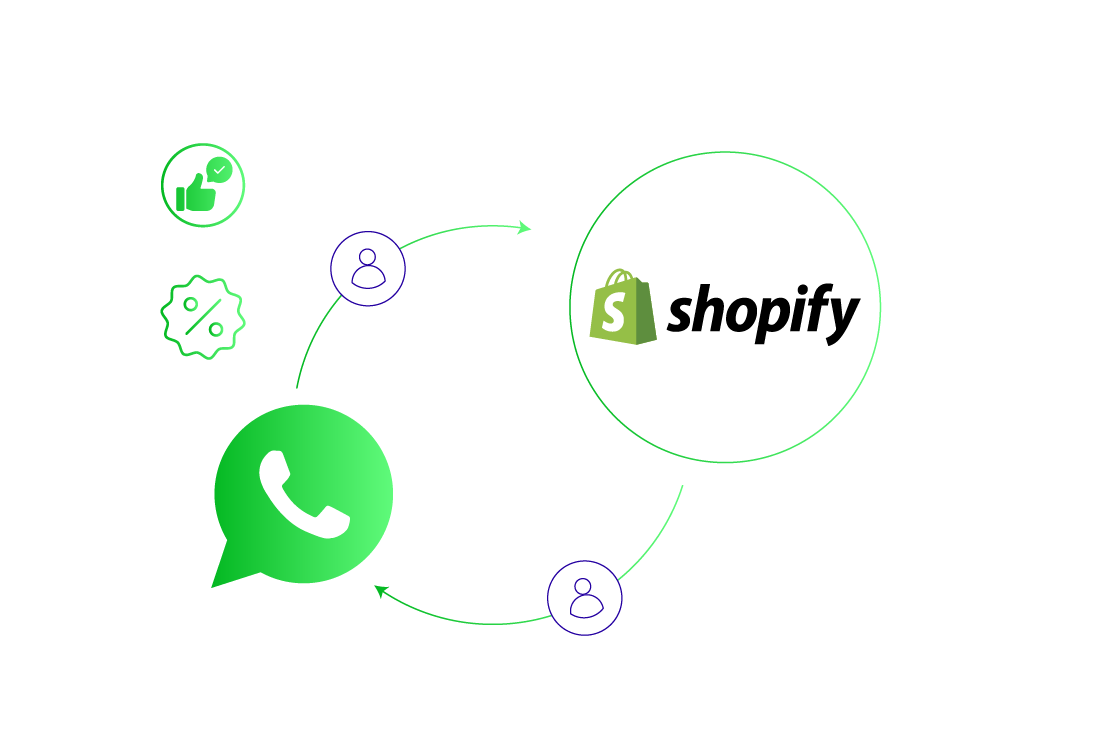
With WhatsApp eCommerce integration, businesses can sync inventory in real time between their online store and ERP systems. This prevents overselling and stockouts.
Customer data flows seamlessly into CRMs, keeping profiles and purchase history up to date. With marketing tools connected, integration also enables personalized promotions and performance tracking.
Payment gateways
Payment gateways are digital services that transmit payment information between businesses, payment processors, and acquiring banks during an electronic transaction.
When combined with WhatsApp eCommerce integration, businesses can offer payment links or checkout options directly within chat, enhancing the customer experience and reducing drop-offs.
The four main types of payment gateways are:
-
Hosted payment Gateway
-
API-hosted Payment Gateway
-
Self-hosted Payment Gateway
-
Local bank integration Payment Gateway
Steering the WhatsApp API Ecosystem Towards a Connected Future:
The future of the WhatsApp API holds several exciting innovations that are set to redefine the way businesses interact with their customers.
It requires aligning technology with accessibility, ethics, and trust.
Here are some key trends that have shaped the evolution of this platform and that businesses must continue to watch out for:
WhatsApp as the Core of Digital Interaction
WhatsApp has transitioned from a simple messaging app to a foundational layer of business communication.
With WhatsApp eCommerce integration, businesses gain a direct, familiar, and seamless channel to engage customers—for marketing, customer support, or even end-to-end commerce.
Integrated with CRM and AI, businesses can send context-aware updates and offers. WhatsApp becomes a consistent brand touchpoint, unified with web, email, and offline efforts.
Global Accessibility and Impact
With its user-friendly interface and multi-platform accessibility, the app has witnessed an unprecedented surge in popularity. Low data usage and device compatibility make WhatsApp accessible to users in bandwidth-constrained environments.
Localized experiences can be delivered in native languages with rich media (images, audio, video). Scalable impact for sectors like healthcare, education, and micro-finance, offering inclusive digital access even in underserved regions.
WhatsApp supports 60+ languages and is available in 180+ countries, making it ideal for global customer engagement. (Source: WhatsApp Business Stats)
Ethical AI & Trust
As businesses increasingly automate WhatsApp conversations using AI and chatbots, maintaining user trust becomes paramount. Ethical AI use is not just a compliance issue it’s a brand imperative.
Disclose upfront that users are interacting with a chatbot, explain how it works, and what data is collected. Provide accurate information from verified sources, protect user data, and offer crisis support resources.
Designate a responsible party for the chatbot and provide channels for users to report issues.
Key Conclusion and Analysis
As digital communication continues to evolve, the WhatsApp Business API stands at the forefront of a new era of customer engagement.
From personalized journeys and real-time support to seamless commerce, it offers businesses the tools to build deeper, more responsive relationships with their customers.
With eCommerce WhatsApp integration, brands can turn conversations into conversions connecting storefronts, CRMs, and payment systems within a single, familiar chat interface.
WhatsApp Business API is more than a communication tool t’s a strategic transformation layer. It enables real-time engagement, deep personalization, and frictionless commerce, all from a channel customers already trust and use daily.
The future of customer engagement isn’t omnichannel; it’s one smart, connected conversation at a time. And it starts with WhatsApp.
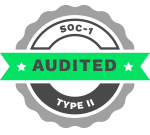











 Magento AI Integration: Transform Your eCommerce Store Into an AI-Driven Revenue Engine
Magento AI Integration: Transform Your eCommerce Store Into an AI-Driven Revenue Engine  Sync Magento Store with Other B2C Ecommerce Platforms: A Guide to Multichannel Integration
Sync Magento Store with Other B2C Ecommerce Platforms: A Guide to Multichannel Integration  MACH Architecture for Unified Global Multi-Store Ecommerce: The Future of Headless Commerce
MACH Architecture for Unified Global Multi-Store Ecommerce: The Future of Headless Commerce  Setting Up Global Ecommerce Stores Without Duplicating Infrastructure
Setting Up Global Ecommerce Stores Without Duplicating Infrastructure 
